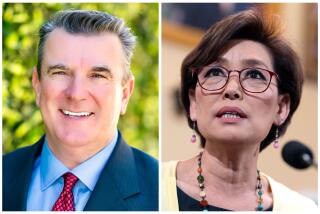Which Kim for Korea?
Months ago Kim Dae Jung and Kim Young Sam, the two main leaders of the political opposition in South Korea, agreed that only one of them should run against the ruling party’s candidate in the December presidential election. Reaching that agreement in the interests of maintaining unity was easy enough; agreeing on which of the Kims should be the candidate has not been. After fruitless negotiations Kim Young Sam tried to force the issue by announcing that he would run for president. Kim Dae Jung has refused to take the hint. He too, he now says, will run. That intention won’t displease the ruling party, but it should dismay many within the opposition.
Kim Dae Jung is likely to spend the next few weeks, as he has spent the last few, appearing before enthusiastic rallies to try to show the extent of his popular support. Undoubtedly he commands a dedicated following. His appeal, though, does not extend equally among important constituencies amd regions, any more than does Kim Young Sam’s. If most students, for example, prefer Kim Dae Jung, most middle-class opponents of the government seem to favor Kim Young Sam. A single opposition candidate who had the wholehearted support of the other could be expected to weld these disparate groups into an effective electoral alliance.
If both candidates insist on staying in the race, though, anti-government forces would be divided and the chance that the ruling party could be replaced would be commensurately reduced. That in itself, it should be emphasized, wouldn’t doom South Korea’s effort to achieve democracy. It’s still possible for free institutions to take root and respect for the popular will to prevail even if Roh Tae Woo, the ruling party’s candidate, becomes president.
The real danger, rather, is that a split in the opposition, along with a probable fourth minor candidate who would draw some votes from Roh, could leave South Korea with a president chosen by only one-third or so of the electorate. Such a result would almost certainly invite popular disaffection. It could also, given the readiness of radical students to take to the streets, lead to renewed disorder. Should that occur, South Korea might well find that it had traded its current authoritarianism not for democracy but for instability, in the process producing the conditions that twice in its recent history provided the unhappy excuse for military coups.
More to Read
Sign up for Essential California
The most important California stories and recommendations in your inbox every morning.
You may occasionally receive promotional content from the Los Angeles Times.










